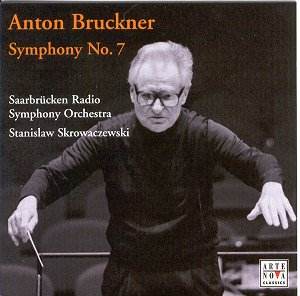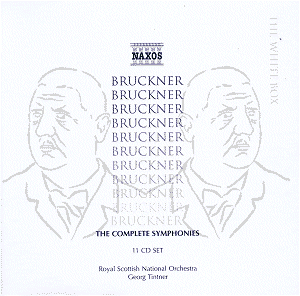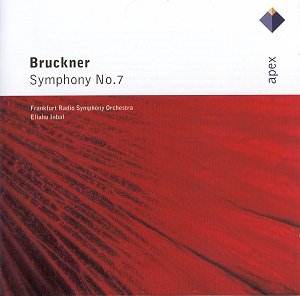 Composer: Anton Bruckner
Composer: Anton Bruckner
Works: Symphony No. 7 in E major
Performers: Saarbrücken Radio Symphony Orchestra, Stanislaw Skrowaczewski (conductor)
Recording: 27-29 September 1991, Kongresshalle, Saarbrücken
Label: Arte Nova 74321 27771-2 [68.45]
Bruckner’s Symphony No. 7, completed in 1883, stands as a monumental testament to his unique symphonic language, blending profound spirituality with expansive structural concepts. Composed during a time of personal turmoil and deep artistic introspection, the Seventh Symphony is often regarded as a pivotal work that consolidates Bruckner’s stylistic maturity. This recording by the Saarbrücken Radio Symphony Orchestra under Stanislaw Skrowaczewski captures not only the grandeur of this symphonic achievement but also its delicate nuances, offering a fresh perspective on a well-trodden repertoire.
Skrowaczewski’s interpretation reveals a deep understanding of Bruckner’s complex architecture. The first movement unfolds with a compelling breadth, the principal theme emerging with a rich sonority that evokes the vast landscapes of the Austrian countryside. The conductor’s ability to navigate the tension and relaxation inherent in Bruckner’s writing is commendable, particularly in the transition to the secondary theme, where rhythmic vitality is deftly balanced against the overarching melodic development. This nuanced approach allows the music to breathe, creating an engaging listening experience that resonates with the audience.
The slow movement, often considered the emotional heart of the symphony, is given a weighty yet lyrical treatment. Skrowaczewski adopts a genuine Adagio tempo, allowing the themes to unfold organically. The treatment of the climactic moment—the debated cymbal clash—is noteworthy. By opting for the Nowak edition, the performance includes this moment, yet its impact feels muted against the pervasive gravitas of the movement. While one might expect this moment to serve as a powerful punctuation, it instead blends into the orchestral tapestry, which is both a strength and a missed opportunity. Nevertheless, the movement’s conclusion, a moving tribute to Wagner, is delivered with a sensitivity that speaks to the deep affection Bruckner held for the composer, embodying a glowing sense of mourning.
The Scherzo, brimming with energy, is a highlight of this recording. The principal trumpet shines with a bright and commanding presence, leading the orchestra through the vigorous rhythmic interplay. Skrowaczewski’s pacing here maintains a propulsive forward momentum without sacrificing the intricate textural layers that characterize Bruckner’s style. The finale, returning to thematic material from the first movement, culminates in a resplendent conclusion that reflects both the joy and solemnity inherent in Bruckner’s musical ethos.
While the sound quality exhibits some limitations compared to contemporary recordings, it remains satisfactory and allows the listener to appreciate the orchestra’s meticulous craftsmanship. The engineering captures the rich timbre of the Saarbrücken orchestra, though it lacks the pristine clarity found in other notable recordings of this symphony, such as those by Herbert von Karajan or Leonard Bernstein. However, this recording’s interpretive strengths more than compensate for its technical shortcomings.
This performance of Bruckner’s Seventh Symphony by Skrowaczewski and the Saarbrücken Radio Symphony Orchestra is a commendable addition to the recorded canon. It illuminates the profound emotional depths and structural clarity of the work while offering a compelling listening experience that invites both reflection and admiration. Collectors and enthusiasts alike will find value in this performance, which stands as a testament to Bruckner’s extraordinary symphonic vision, executed with skill and insight.

